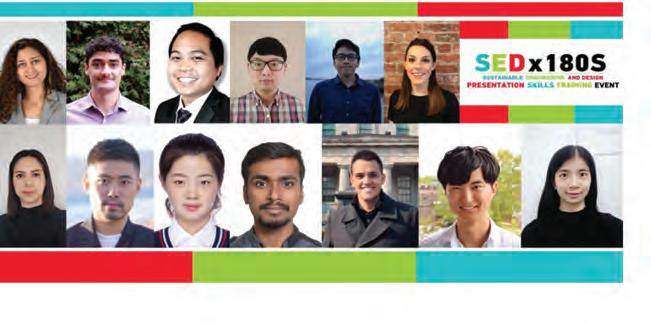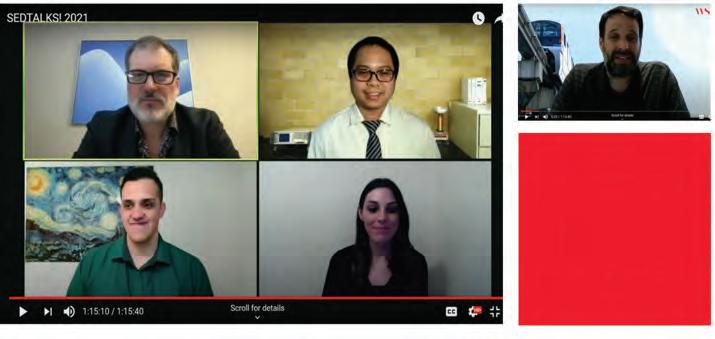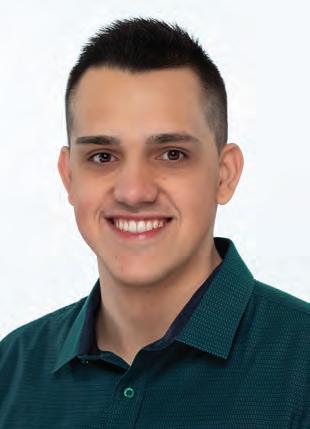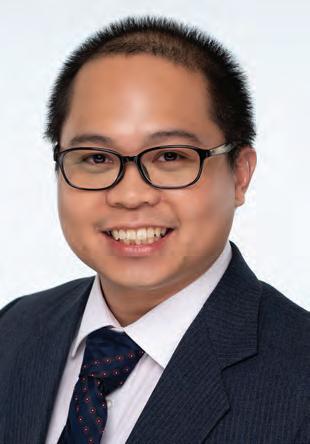
3 minute read
SEDTALKS
The SEDTalks! Presentations Skills Training is a platform for graduate students to share their sustainability research, develop professional skills in public-speaking and communication, expand their academic and industrial networks, and work with other researchers to make an impact on sustainability through engineering and design. Delivered in partnership with SkillSets and led by oral communication professionals, from Teaching and Learning Services (TLS), the training includes workshops, small group coaching sessions with feedback, and explores strategies to design research talks that are both accessible and impactful.
The 2020-2021 cycle marked the 5th anniversary of the SEDTalks! Training and this year, the program was revamped and adapted to the virtual setting, due to the cancellation of all in-person extracurricular activities and events at the university.
Advertisement
The primary focus of the fall 2020 workshop was for the students to deliver a virtual 180-second talk on their research to a multidisciplinary audience at the SEDx180S event that was held in December. We had the largest, and most diverse cohort of participants during the Fall 2020 training.
30+ Training workshop participants from all units in the Faculty represented 13 Students presented 180-second research talks at the SEDx180s
At the conclusion of SEDx180S, a selection committee chose 3 students, our 2021 ChangeMakers, who proceeded to the winter training and delivered full presentations at the annual SEDTalks! Event, which was held virtually on March 24, 2021.
TISED is also pleased to report that the 2021 SEDTalks! Event was sponsored by WSP, one of the world’s leading professional services firms. Mr. Eric Peissel, Executive Vice President, Advisory & Innovation gave the welcoming address and spoke about WSP’s commitment to sustainability and to support the SEDTalks! Initiative the ongoing demand in the global marketplace for engineers, urban planners and architects who have a strong understanding of sustainability and the challenges that face the global community in the coming decades.

Program ChangeMakers


Breno Mumic Sequeira
Chemical Engineering, MEng Candidate Anne-Marie Kietzig, Supervisor Advanced Materials and Nanotechnology Fabrication of non-stick plastic containers: A key to creating longer lasting and easily recyclable containers
A frequent problem in the use of food and waste packaging is the final emptying of containers. Containers with food residue are rejected from recycling and, instead, end up in landfills where food decomposition emissions are a major contributor to global warming, acidification, and eutrophication. The solution may be super hydrophobic plastics created by understanding how liquids can be repelled by micro-textured surfaces. Breno’s research uses a laser-micromachining process for fabricating micro-patterns suitable for molding polymer containers. Taking this laser- micromachining of metallic mold surfaces from the laboratory to the industrial level may hold the key for dramatically increasing the recycling of common plastics.
Wastewater treatment plants are hotspots of antibiotic resistance, the spread ofwhich threatens nearly every aspect of modern medicine. Through a series ofdetailed reactor experiments and novel techniques for antibiotic resistance genedetection, Claire’s research investigates the impact of the influent wastewaterbacterial community on the overall microbial community and examines antibioticresistance within wastewater treatment facilities.In the future, her researchshould allow engineers to reconfigure wastewater treatment plant design totackle this antibiotic resistance hotspot.
The recent growth of the renewable energy sector has been continuously driven by pressure to reduce our carbon footprint and help reverse the negative effects of climate change. But unlike traditional oil and coal plants, which use generator systems that produce power that automatically synchronizes with the electric grid, renewable sources, such as solar panels and wind generators, need power converters before connecting to the grid. Chris’ research focuses on the development of these converters by taking advantage of recent developments in silicon carbide semiconductors. The efficiency and cost of these power converter system are among the major challenges to massively scale up green energy plants to minimize the dependence on fossil fuels and mitigate climate change.

Claire Gibson
Civil Engineering and Applied Mechanic, Ph.D. Candidate Dominic Frigon, Supervisor Sustainable Industrial Processes and Manufacturing Eliminating a Key Antibiotic Resistance Hotspot: Investigating the Impact of Influent Immigration on Antibiotic Resistance inWastewater Treatment Plants

Christopher Ramos
Electrical and Computer Engineering, Ph.D. Candidate Geza Joos, Supervisor Renewable Energy and Energy Efficiency Wind and Solar Energy Integration: Creating Silicon Carbide Switch-based Converters to Connect Renewables to the Grid








